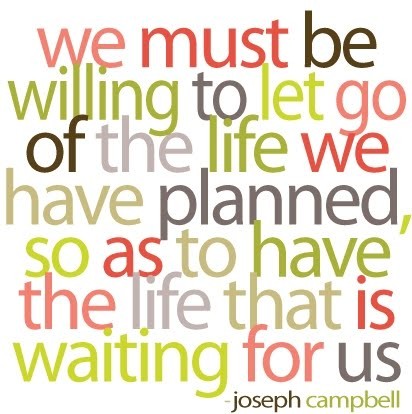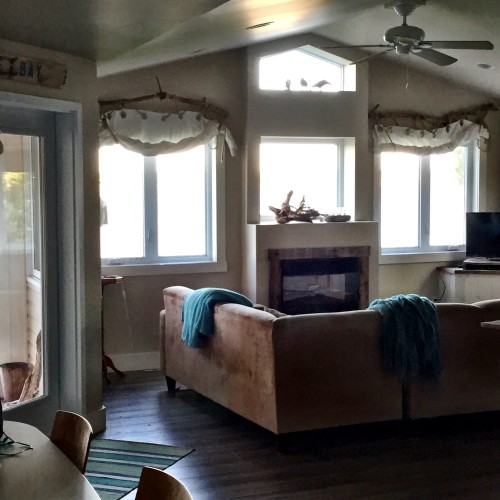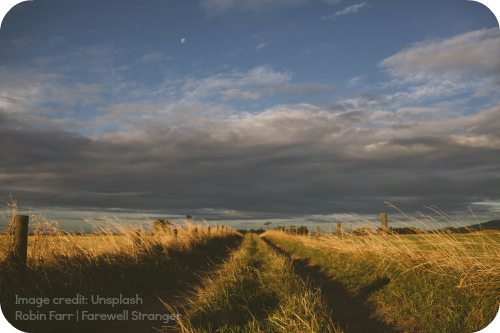I’m driving down a road I’ve never been on, sun streaming in, music on the radio.
I’ve run away again.

***
For the last few weeks I’ve been carrying the pain of this in my gut. Before that it was in my head, threatening to take over so I pushed it down, but it’s making me sick. It can’t be pushed down or ignored.
“What’s true is true,” the voice on the radio had said, reporting on someone else’s journey from pain to acceptance. “What’s true is true,” I thought. It is what it is. I can’t change it and it will happen whether I like it or not. There’s no point refusing to accept it because what’s true is true. It is what it is.
***
Acceptance is one thing. I’ve tried to get there. I sit and breathe and try to accept. I feel mostly flat.
Letting go, on the other hand, is active, deliberate. Letting go is hard, necessary.
Letting go is something altogether different.
I take a deep breath and think, Right. Let it go. And then the tears come.
This is the work I need to do.
***
Those who have been here before me assure me it gets better. Those who have already walked the path from married to not assure me there is beauty on the other side. Sweetness. A bit of freedom. A different but happy future.
I can see all of that. I can. I can see how it could be so good for me and even possibly better. I can see how my kids will be okay. But I can also see the big and significant things I’m losing.
***
“We must let go of the life we have planned, so as to accept the one that is waiting for us,” said Joseph Campbell, whom I have quoted here before.

I had forgotten about that quote, hadn’t thought about how it applies in this situation until I read this very wise piece. And it does, of course, in much more literal ways than the circumstances I had applied it to before.
“Your post-divorce life may be radically different from the life you once expected, so you’ll have to refocus your vision to match your new circumstances. Divorce initiates major life changes, many of which are extremely unwelcome and difficult to accept… Events you once blissfully looked forward to — growing old with your spouse, sitting side by side at your children’s weddings, hosting your grandchildren together — probably aren’t going to happen… It’s not easy, but if you want to be happy, you’ll have to let go of the old image of your life and replace it with an exciting new vision of your own design.”
You’ll have to let go…
***

Once again a friend has said, “You can stay at my place,” except this time it’s on the other side of the country. So here I am, in a place I have always wanted to visit, in a setting so beautiful it can’t help but inspire peace. The atmosphere of this place – beach and shells and quiet and shades of turquoise – makes me feel decidedly somewhere else. And very far away.
I have three days here to find myself somewhere I haven’t been. I have three days to let it go.
And when I get home I’m going to accept. And find a way to move on.
***

Driving down that road I’ve never been on with the sunshine streaming in, the voice on the radio is different.
“I’ve got a smile on my face, I’ve got four walls around me
The sun in the sky, the water surrounds me
I’ll win now but sometimes I’ll lose
I’ve been battered, but I’ll never bruise, it’s not so badAnd I say way-hey-hey, it’s just an ordinary day
and it’s all your state of mind
At the end of the day, you’ve just got to say,
it’s all right.”














